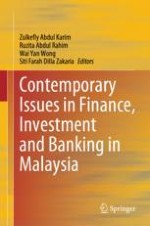2024 | OriginalPaper | Buchkapitel
The Impact of Market Sentiment on Business Fixed Investment in Malaysia
verfasst von : Zulkefly Abdul Karim, Ahmad Yusmadi Yusoff, Bakri Abdul Karim, Norlin Khalid
Erschienen in: Contemporary Issues in Finance, Investment and Banking in Malaysia
Verlag: Springer Nature Singapore
Aktivieren Sie unsere intelligente Suche, um passende Fachinhalte oder Patente zu finden.
Wählen Sie Textabschnitte aus um mit Künstlicher Intelligenz passenden Patente zu finden. powered by
Markieren Sie Textabschnitte, um KI-gestützt weitere passende Inhalte zu finden. powered by
